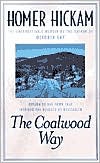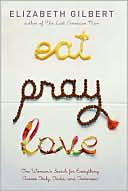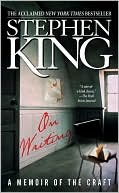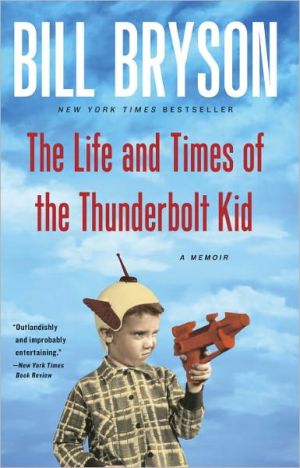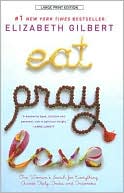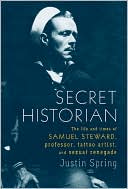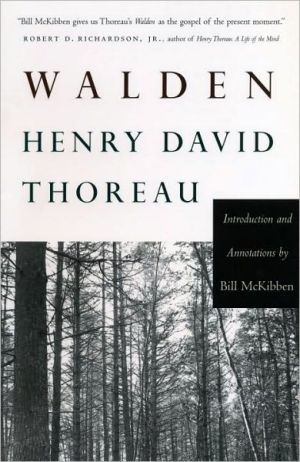Coalwood Way: A Memoir
From the #1 bestselling author of October Sky comes this rich, unforgettable tale. With the same dazzling storytelling that distinguished his first memoir, Homer Hickam takes us deeper into the soul of his West Virginia hometown at a moment when its unique way of life is buffeted by forces of time and change.\ It is fall 1959. Homer “Sonny” Hickam and his fellow Rocket Boys are in their senior year at Big Creek High, and the town of Coalwood finds itself at a painful crossroads.\ The strains...
Search in google:
From the #1 bestselling author of October Sky comes this rich, unforgettable tale. With the same dazzling storytelling that distinguished his first memoir, Homer Hickam takes us deeper into the soul of his West Virginia hometown at a moment when its unique way of life is buffeted by forces of time and change. It is fall 1959. Homer “Sonny” Hickam and his fellow Rocket Boys are in their senior year at Big Creek High, and the town of Coalwood finds itself at a painful crossroads. The strains can be felt within the Hickam home, where Homer Sr. struggles to save the mine, and his wife, Elsie, is feeling increasingly isolated from both her family and the townspeople. Sonny, despite a blossoming relationship with a local girl, finds his own mood darkened by an unexplainable sadness. Then, with the holidays approaching, trouble at the mine and the arrival of a beautiful young outsider bring unexpected changes in both the Hickam family and the town of Coalwood ... as this luminous memoir moves toward its poignant conclusion. Publishers Weekly Not really a sequel to Hickam's first memoir, Rocket Boys (which was made into the successful movie, October Sky, and dealt primarily with his gang of misfit friends and their inventive, adventurous exploits) this book, set around Christmas 1959, is a study of the town of Coalwood and how a fast-moving world affects a small community resistant to change and the introspective teenage boy in its midst. Hickman's reading is flawless. His voice and perspective--as a man looking back on his childhood--convincingly conveys experience and a reminiscent tone, while at the same time sounding so full of youthful exuberance that listeners will be certain they hear the voice of teenage Homer himself. Coalwood, W.Va., is a coal-mining town. Homer Hickam Sr., the author's father, is the superintendent of the mine and resented by the workers. To his children, he is a formidable man, and his imaginative second son, Homer Jr., aka "Sonny," obsessed with the 1950s space race, does not want to follow in his father's black, dusty footprints. With Christmas fast approaching, the tension in the town grows as layoffs threaten miners' jobs, until Sonny's father takes a huge risk to save them and the town's livelihood. Simultaneous release with the Dell hardcover (Forecasts, Sept. 18). (Oct.) Copyright 2000 Cahners Business Information.
Song of the Cape\ \ Of all the lessons I learned when I built my rockets, the most important were not about chemistry, physics, or metallurgy, but of virtues, sins, and other true things that shape us as surely as rivers carve valleys, or rain melts mountains, or currents push apart the sea. I would learn these lessons at a time when Coalwood, the mining town where I had lived my entire life, was just beginning to fade away. Yet, as the fall of 1959 began, and the leaves on the trees in the forests that surrounded us began to explode in spectacular color, Coalwood’s men still walked with a trudging grace to and from the vast, deep mine, and its women bustled in and out of the company stores and fought the coal dust that drifted into their homes. In the dark old schools, the children learned and the teachers taught, and, in snowy white churches built on hillside cuts, the preachers preached, and God, who we had no doubt was also a West Virginian, was surely doing His work in heaven, too. At the abandoned slack dump we called Cape Coalwood, rockets still leapt into the air, and boyish voices yet echoed between ancient, worn mountains beneath a pale and watchful sky. Coalwood endured as it always had, but a wheel was turning that would change nearly everything, and no one, not even my father, would be able to stop it. When that brittle parchment autumn turned into our deepest, whitest winter, this and many other lessons would be taught. Though they were hard and sometimes cruel things to learn, they were true, and true things, as the people of Coalwood saw fit to teach me, are always filled with a shining glory.\ To me, there was no better time to launch a rocket than in the fall, especially a West Virginia fall. There seemed to be a cool, dry energy in the air that filled us with a renewed sense of hope and optimism. I had always believed that our rockets were lifted as much by our dreams as by burning propellant, and as the lazy summer faded and a northerly wind swept down on us with its lively breath, anything seemed possible. It was also when the school year started and I always felt an excitement stir within me at the thought of learning new and wonderful things. Fall had other marvels, too. At the Cape, we were often treated to V-shaped flotillas of migrating Canadian geese, bound from the far north to places we had only read about or imagined. We always stopped our rocket preparations to gaze longingly at the great creatures as they winged their way high overhead, and to listen to their joyful honking that seemed to be calling us to join them. “If only we could,” Sherman said once to my comment. “Even for just a moment, to look down on our mountains and see them the same as angels.” Sherman always liked to remind us that we lived in a beautiful place and I guess we did, although sometimes it was easy to forget, especially since we’d never known anywhere else.\ Once, a rare snow goose, as purely white as moonbeams, landed on the old slack dump, perhaps fooled by the reflection from the slick surface of the coal tailings. We gathered around the great strutting bird, awed by the sight of her. Then I noticed that her wing tips were as black as the faces of Coalwood miners after a shift. O’Dell said the reason for the black tips was so the geese could see each other inside a white cloud. O’Dell knew a lot about animals so I believed his explanation, but it got me off to thinking. How did the snow geese decide what colors their feathers would be? Did they all get together up north somewhere a million years ago and take a vote? It was a mystery and the snow goose made no comment. She just looked annoyed. When she tired of us gawking at her, she flapped her wings and continued her journey, and I confess I was relieved. I knew the snow goose did not belong in Coalwood. Some people, especially my mother, said neither did I.\ Our first rocket of the fall was Auk XXII-E. A serious little rocket, it began its journey with a mighty spout of flame and turmoil and its shock wave rattled our wooden blockhouse as it climbed. I ran outside with the other boys, but no matter how much I strained my eyes, I couldn’t see it. All I could see were clouds that went, as far as I knew, all the way up to heaven. The seconds ticked by. We had never lost one of our rockets, but I was beginning to wonder if maybe this one was going to be our first. If it had fallen on Rocket Mountain, buried itself into the soft black West Virginia loam up there, maybe we had missed it. “Time, O’Dell,” I called nervously.\ O’Dell looked at the stopwatch he’d borrowed last year from one of the coal company industrial engineers and forgotten to give back. “I think it’s still flying,” he said.\ “Then where is it?” I demanded. We couldn’t lose it. Like every rocket we launched, it held answers we had to know.\ “There it is!” Billy yelled as he began sprinting across the slack. I still couldn’t see anything but I ran after him anyway. He easily pulled away from me with athletic grace, his muscles like small coiled springs, his shoes sending up little puffs of black grit as he ran. How that boy could run! Nobody could keep up with Billy Rose when he had his sharp eyes locked on a rocket. I, on the other hand, tended to be a pretty slow runner. I think it was because I was so nearsighted. I was always afraid I was going to run into something.\ O’Dell trotted up alongside me, putting a hand on my elbow to straighten me out. “Time looks good,” he said, and then ran on ahead, his mop of blond hair bouncing as his short legs churned. He held his stopwatch in front of him, his finger poised to click it off the moment our rocket hit the slack.\ Roy Lee caught up with me next. He was in his Dugout clothes, a tight pair of draped and pegged black pants, brown loafers, a pink shirt with black piping, and hair thoroughly lacquered down into a swept-back DA. He had a date for the Saturday-night dance at the teen hangout in War and was headed that way right after the launch. “I never can see the blamed things,” he griped as he ran by me. Roy Lee’s long legs soon had him beside O’Dell, but Billy was still far ahead.\ Behind me, I could hear Sherman’s uneven gait, his left leg slung in an arc at each step, his built-up shoe scuffing the slack. Polio had given his leg a twist and turned it thin as a sapling. I slowed to let him catch up and run alongside me. “O’Dell said the time looks good,” I gasped.\ Sherman broke into a grin at my report. “Maybe it’s going to be a great rocket,” he said.\ A “great rocket” was what Quentin, the brains of our outfit, called the rockets that did exactly what we’d designed them to do. I sincerely hoped Sherman was right. Auk XXII-E used an untried propellant. With rockets, anytime you changed one thing, a lot of other things changed, too, and it was hard to predict what all they might be. In that, I guess they were a bit like me and the rest of the boys. Even though we were all seniors in high school and thought of ourselves as being grown up, the truth was we had a way to go. I was sixteen, they were seventeen, and every day, it seemed we grew a little, usually in some unpredictable way. Sometimes, I had trouble recalling who I had been the day before, or might be tomorrow. Coach Gainer called it the “teenage boy crazies.” When I got too afflicted with it, my mom always jerked a knot in my tail and said, “Straighten up and fly right.” And so I did.\ Quentin was downrange so that he could measure the altitude of our rocket using trigonometry. To do it, he had to see the rocket at peak altitude and aim at it with a device he had built out of a broomstick, a nail, a wooden ruler, and a plastic protractor. He called his invention a theodolite. But clouds had defeated him today, the rocket disappearing through the heavy layer that hung overhead. We would have to depend on O’Dell’s stopwatch.\ “Whoa! Stop!” Billy cried as we ran up to him. He had his arms outstretched to hold us back. I could hear the rocket whistling as it came in, and then, a hundred yards ahead, there was a big metallic retort and a plume of slack. The Auk had struck nosefirst. “Come on!” Billy yelled, and we ran on.\ “Thirty-one seconds,” O’Dell reported as we reached the rocket. I did a quick mental calculation. I had designed Auk XXII-E to reach an altitude of 6,000 feet. It had reached, according to the formula we used, less than 4,000 feet. That was a disappointment. The Big Creek Missile Agency (or BCMA, as we liked to call it) had been in business for nearly two years, ever since the sight of the Russian Sputnik flying through the starry sky over Coalwood had first inspired us to join the space race. We’d started off slow, our rockets mostly blowing up, but after a while we had gotten the hang of it. We had already sent rockets higher than a mile using our old rocket candy propellant. The new propellant we were using should have easily gotten us past the mile mark. Something had gone seriously wrong with this little rocket, and I itched to find out what it was.\ The smoking Auk was too hot to touch, so I gave it a quick eyeball once-over. The casement, which is what we called the body of the rocket, was made from a three- foot-long, one-and-a-quarter-inch-diameter length of seamless steel tubing. Steel tubing of that size and make was incredibly strong, yet it was now slightly bent. That wasn’t unexpected, since it was flying at over three hundred miles per hour when it had hit the hard slack. The wooden nose cone that had capped it had been reduced to splinters. One of the four fins welded to the casement had broken off. The machinists in the coal company machine shop would be interested in the damage. They had become dedicated rocket builders, sneaking in the work between jobs sent down by the mine. My father, the mine superintendent, had tried for months to stop them but had finally given up. “Bill,” Dad had said to their supervisor, “they’re your problem. Just remind your boys who pays their wages.” The machinists heard Dad’s reminder but it didn’t make much of an impression on them. Building rockets, after all, was a lot more fun than working on mine equipment.\ I wanted most of all to look inside the nozzle, the working end of the rocket. Our new propellant, which we called “zincoshine,” consisted of zinc dust, sulfur, and the purest alcohol John Eye Blevins could produce from his still up Snakeroot Hollow. The nozzle and the propellant were the keys to our success. Unless both worked according to our designs, our rockets might fly but they were not going to be “great.”
\ From Barnes & NobleOur Review\ Welcome back to Coalwood, West Virginia, home of high school student and regular guy Homer Hickam. When we last saw Homer, in the first installment of his memoirs, Rocket Boys, he was doing his part for the space race by overcoming astounding odds to design functional model rockets propelled by a mixture of zinc and moonshine. The Coalwood Way picks up where Rocket Boys let off, but whereas Hickam's first book spotlighted his efforts to shoot his rockets miles into the atmosphere, his second effort swings the young man's searching gaze around to focus on his immediate surroundings: Appalachia, 1959. \ Everything is puzzling for our Coalwood boy. His father, a single-minded mine foreman, is engaged in an exhausting battle to save the mine -- the town's lifeblood -- from the evil cost-cutting measures of its new corporate owners. Hickam's indomitable mother is insisting on going to Florida for Christmas and leaving everyone else behind. His Big Creek Missile Association is having trouble with its rockets. His favorite girl, the piano teacher's daughter, has a boyfriend whose father owns a car dealership. Oddest of all, Homer is suffering from some kind of intermittent, inexplicable depression. Through his efforts to understand his own feelings and place in the world, we learn all about the happenings in his small town that's anything but sleepy.\ Indeed, the town of Coalwood is a magnetic character in Hickam's life. And Coalwood is in trouble. Miners are out of jobs, children are starving in the next hollow over, and capitalism is just wreaking havoc on the once peaceful spot. As Hickam begins his tale, "Coalwood's men still walked with a trudging grace to and from the vast, deep mine," but he knows, and the reader knows, that this world is slipping away. All we can do is watch the slow slide through Hickam's eyes.\ It's a tough job to write a balanced story about a place you have loved and lost. The Coalwood Way has so much heart it fairly oozes off the pages, but, happily, Hickam manages to keep his account just this side of saccharine. His sincerity and knack for spinning a yarn allow the reader to let her guard down and simply enjoy the tale of a place that once existed in an America that used to be.\ --Rachel Fishman\ \ \ \ \ \ Publishers Weekly - Publisher's Weekly\ Not really a sequel to Hickam's first memoir, Rocket Boys (which was made into the successful movie, October Sky, and dealt primarily with his gang of misfit friends and their inventive, adventurous exploits) this book, set around Christmas 1959, is a study of the town of Coalwood and how a fast-moving world affects a small community resistant to change and the introspective teenage boy in its midst. Hickman's reading is flawless. His voice and perspective--as a man looking back on his childhood--convincingly conveys experience and a reminiscent tone, while at the same time sounding so full of youthful exuberance that listeners will be certain they hear the voice of teenage Homer himself. Coalwood, W.Va., is a coal-mining town. Homer Hickam Sr., the author's father, is the superintendent of the mine and resented by the workers. To his children, he is a formidable man, and his imaginative second son, Homer Jr., aka "Sonny," obsessed with the 1950s space race, does not want to follow in his father's black, dusty footprints. With Christmas fast approaching, the tension in the town grows as layoffs threaten miners' jobs, until Sonny's father takes a huge risk to save them and the town's livelihood. Simultaneous release with the Dell hardcover (Forecasts, Sept. 18). (Oct.) Copyright 2000 Cahners Business Information.\ \ \ VOYAThis autobiographical sequel to the popular Rocket Boys (Delacorte, 1998), which was made into the movie October Sky, chronicles the events in Coalwood, West Virginia, in the autumn of 1959. The Rocket Boys still are attempting to develop and launch a "great rocket"—one that can soar more than a mile above the Earth—while the town still is trying to dig a future out of the maze of mines in the surrounding hills. Sonny Hickam, founder of the Rocket Boys, struggles with many issues besides differential equations and rocket design. The death of Sonny's grandfather the previous Christmas, the increasing fragility of the town's way of life, and a new awareness of the prejudices surrounding the people of Coalwood all shift the focus of this novel. Emphasis on the launching of rockets changes to deeper thoughts of the future of coal mining and of the Hickam family. As Sonny continues to try to attain his goals of making straight As in school, building a great rocket, and finding a girlfriend, an overwhelming sadness creeps into his life. He first attempts to work it out logically, then seeks the advice of friends and the local church pastor. It is not until he has an epiphany during a pre-Christmas snowstorm that he realizes that it all stems from his relationship with his father. Hickam tackles many issues for teenagers in this amazing memoir. His use of anecdotes, colloquialisms, and humor complement this beautifully crafted tale of a man and his son seeking to save their worlds. Best suited for older teens, it will be a particularly appropriate book for boys as it deals with boys' relationships—with fathers and with girls—and with how boys begin to develop their ownplaces in the world separate from their families. VOYA CODES: 5Q 4P S A/YA (Hard to imagine it being any better written; Broad general YA appeal; Senior High, defined as grades 10 to 12; Adult and Young Adult). 2000, Delacorte, 256p, . Ages 16 to Adult. Reviewer: Heather Hepler SOURCE: VOYA, April 2001 (Vol. 24, No.1)\ \ \ \ \ Library JournalIn this follow-up to his acclaimed Rocket Boys, retired NASA engineer Hickam recounts tensions in his household during his last Christmas before college, even as the Rocket Boys are drafted to help celebrate the holidays with a really big bang. Copyright 2000 Cahners Business Information.\\\ \
